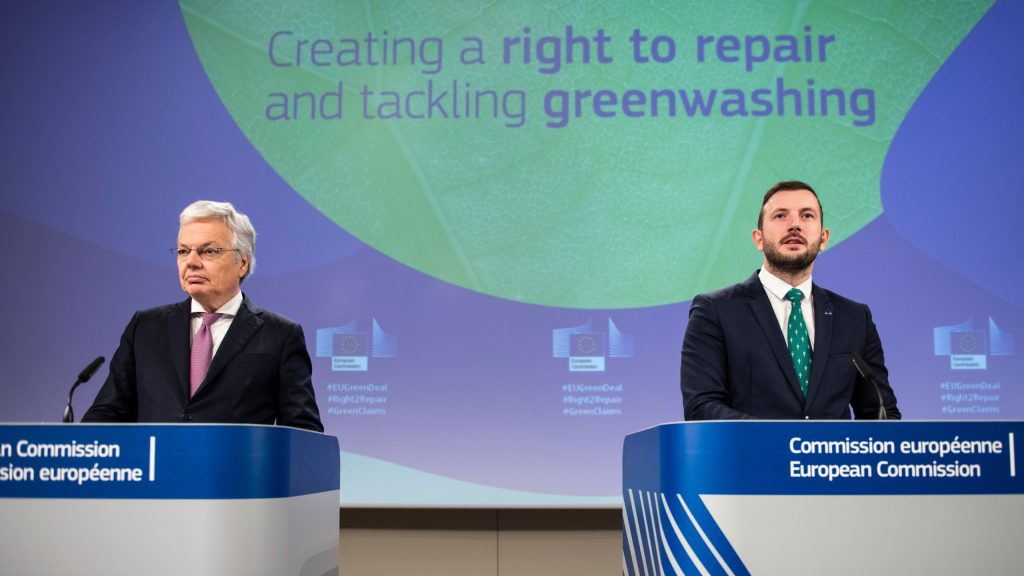• Confirms continued commitment to anti-greenwashing law after confusion over withdrawal
• Microenterprise exemption remains the key sticking point
• Final outcome hinges on Council clarity and political consensus
The European Commission has clarified that it has not withdrawn the Green Claims Directive, despite confusion following a statement last week that suggested the EU executive intended to pull the proposed anti-greenwashing regulation ahead of final negotiations. The clarification comes after political backlash, media reports, and the cancellation of the trilogue meeting that was set to finalize the law.
The Green Claims Directive was introduced in March 2023 as part of the European Green Deal and consumer protection agenda. Its purpose is to combat greenwashing by requiring companies to substantiate voluntary environmental claims with scientific evidence, undergo independent verification, and limit the use of misleading eco-labels. The proposed regulation would apply to all environmental claims made about products and services in the EU, with specific provisions to ensure that claims are accurate, comparable, and credible. According to EU data, more than 50% of green claims are currently vague or misleading, and 40% are completely unsubstantiated.
Just days before the final trilogue negotiations were scheduled for June 23, the European People’s Party (EPP), the largest party in the European Parliament, issued a formal request for the Commission to reconsider and withdraw the proposal. The EPP argued the directive would create excessive compliance burdens, particularly for microenterprises.
In response, a Commission spokesperson stated at a press conference that the “Commission intends to withdraw the Green Claims proposal,” prompting confusion among lawmakers and observers, and the immediate cancellation of the trilogue.
In a subsequent statement to a media outlet, a Commission spokesperson confirmed that the directive has not been formally withdrawn. The spokesperson clarified that the Commission only intended to withdraw the proposal if microenterprises remained within its scope, citing concerns over disproportionate administrative burden. Microenterprises—businesses with fewer than 10 employees and under €2 million in revenue—represent approximately 96% of companies in the EU.
“At no point has there been a backtrack on commitment to the Green Claims,” a Commission official told POLITICO, speaking on background. The official added that President Ursula von der Leyen continues to support the directive, despite the earlier contradictory statement from the Commission’s public spokesperson.
Several members of the European Parliament criticized the Commission’s handling of the situation. Anna Cavazzini, Chair of the Committee on the Internal Market and Consumer Protection, and Antonio Decaro, Chair of the Committee on the Environment, issued a joint statement warning that the incident could “set a dangerous precedent” for the legislative process and undermine trust among co-legislators.
Meanwhile, Sandro Gozi, the Parliament’s lead negotiator (Rapporteur) on the directive, emphasized that Parliament had already agreed to exempt microenterprises in the previous trilogue round. He questioned the Commission’s justification for the withdrawal threat, calling the move both “unnecessary and unfounded.”
The Polish Council presidency, which currently leads negotiations on behalf of EU member states, has paused further discussions, citing the need for clarity from the Commission. Italy’s recent decision to withdraw its support further complicates the file, as it removes the qualified majority needed for the Council to move forward.
The future of the Green Claims Directive now hinges on two factors: clarification and unity among EU member states on whether microenterprises should be exempted, and rebuilding political consensus in both the Council and Parliament following the breakdown of negotiations. EU ambassadors are expected to revisit the issue on Wednesday, as the Polish presidency seeks direction on whether and how to resume trilogue negotiations.
The Green Claims Directive is a central part of the EU’s broader plan to regulate sustainability claims and ensure that consumers can trust the environmental messaging of companies. While the Commission has now reaffirmed its commitment to the proposal, the uncertainty created by last week’s events has stalled progress, raising concerns about the legislative process and the EU’s ability to deliver on its Green Deal commitments in the final months of the current political cycle.

